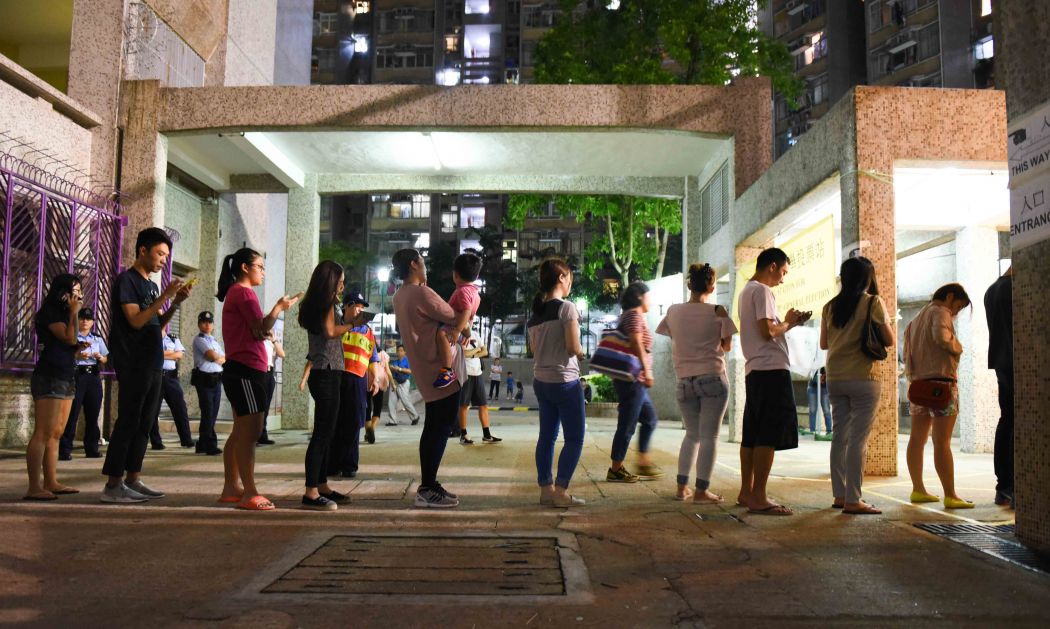Civil groups have urged the public to register as voters, ahead of the annual deadline on Tuesday May 2. According to records, a million eligible voters have yet to register.
Two by-elections in the Kowloon West and New Territories East constituencies may occur this year after two democratically-elected lawmakers were ousted from the legislature. Baggio Leung and Yau Wai-ching’s case will be heard at the Court of Final Appeal in August, though it is unclear whether by-elections will take place before or after the court date.

According to figures from the Registration and Electoral Office, 3.78 million people are registered as voters as of last year.
However, 4.79 million were eligible to become voters in 2016 – meaning only 78.9 per cent had registered, according to information obtained by the group 80s Momentum through the government’s Code on Access to Information.
Any Hong Kong permanent resident aged 18 and above, who ordinarily resides in Hong Kong, is eligible to sign up as a voter.
The group, formed after the 2014 pro-democracy occupy protests to fight for civil liberties, said a million people were unable to choose their political representatives. It said that they were disenfranchised not because of unfair treatment, but because they had not registered – thus, they had automatically given up their rights.
“We believe that, in the current atmosphere, most Hong Kong people can feel our freedoms have been gradually tightened. Under such circumstances, no matter what your political stance, you should not give up your rights,” Kevin Ko Tin-fai, the convener of the group, told HKFP.
“The protests or political incidents over the past few years surrounded university students or young people, such as Joshua Wong, Nathan Law, and Edward Leung,” he added. “Most would think young people care about current affairs very much, but it was a different story looking at the registration rate.”

The Registration and Electoral Office offers an online system for eligible voters to fill in and submit the form. However, it requires digital signatures – otherwise users have to print the form and sign it manually.
Keyboard Frontline, a group advocating for internet freedoms, has also created an online platform to assist unregistered voters in filling out the form. The form can be signed online, after which, it will be submitted to the Office. The group claims that the platform, which is in Chinese only, can be used to complete a voter registration form within three minutes.
Young voters
Before the registration deadline in 2016, only 112,000 of the people between 18 and 20 were registered as voters. It meant that only 47.9 per cent of the eligible voters within the age group had registered.
Keyboard Frontline decided to take action: “If they all registered as voters and voted, it could be enough to win two Legislative Council seats,” the group said.
When the final voters’ register of 2016 was published, the number of registered young people had significantly increased.

According to Keyboard Frontline spokesperson Glacier Kwong Chung-ching, after the deadline last year, 52.4 per cent of people between 18-20 had registered.
She said the group’s platform generated some 10,000 voter registration forms last year.
“The result last year was quite good, maybe because it was an election year, and many people registered because of the by-election in the New Territories East constituency,” she told HKFP. “This year, I don’t think there will be as many.”
To encourage registration, Keyboard Frontline and 80s Momentum also adopted unorthodox tactics, such as posting an “Amazing Cat” animation – which baits social media users into clicking through to the voter registration platform.
Last year’s Legislative Council election saw the record high turnout rate, with 58.28 per cent or 2,202,283 people voted in the election.
